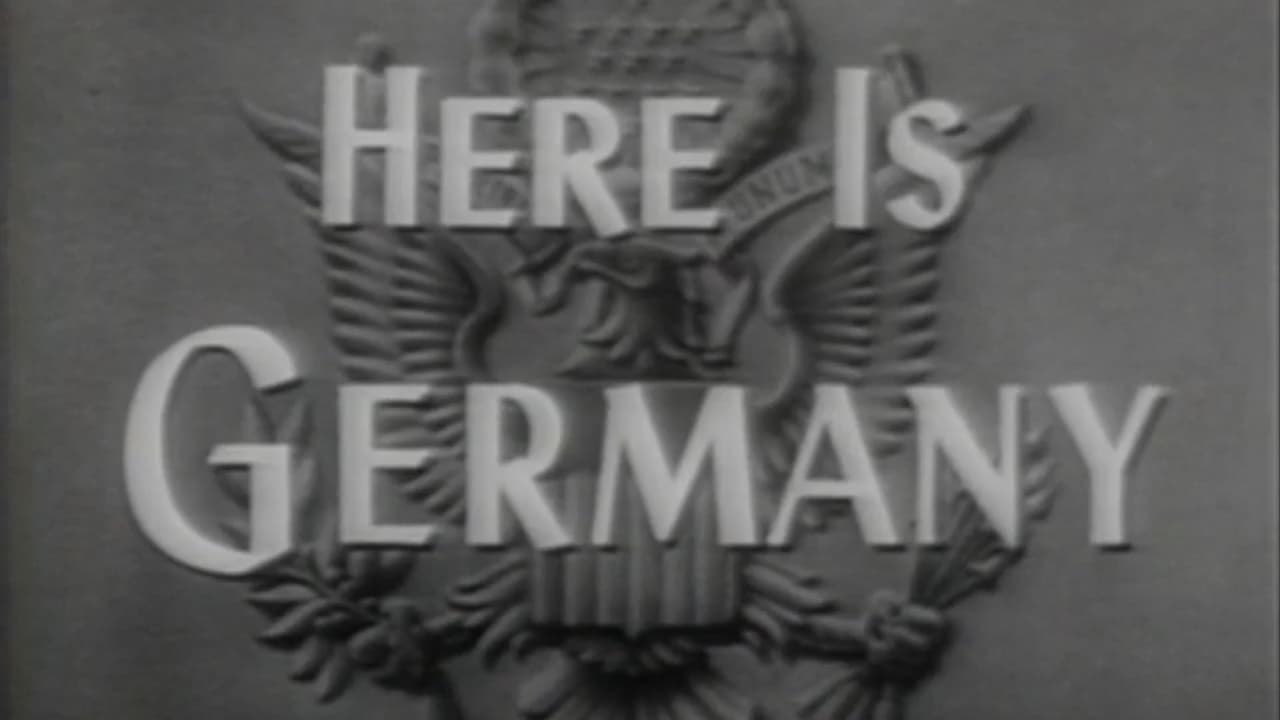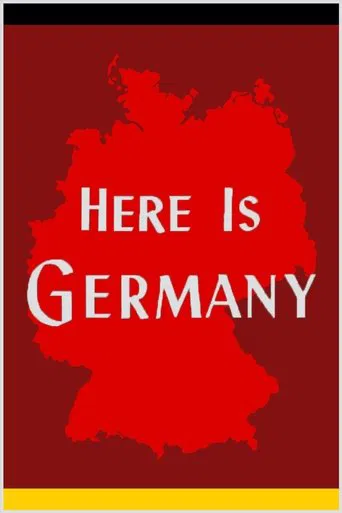

SO obviously propaganda that I wonder WHAT was wrong with the USA of 1945 to find this appealing. The history is okay, but they fail to mention that in the seven months between the Armistice of 1918 and the Treaty of Versailles, the Allies invaded Germany, thus violating the Armistice. THIS made Germany furious and lust for revenge. What I found fascinating with this was a new twist to the question of "How did Hitler rise to power?" This documentary alludes to it being the industrial powers who wanted their riches to grow and they needed a (poster child) for the people to rally around. They also needed to overthrow the democracy that had arisen around the end of WWI. They saw Hitler as the man to help them get back on their feet. ... I've never heard this angle before, but it makes more sense to me than Any of the propaganda pitches I'd grown up with. The fact that Hitler grew more powerful than the Rich & Powerful may have wanted isn't & doesn't need to be told. Frankly, my personal suspicion is that THEY remained in power After the end of the second world war.
... View More1945, and the Allies won the war. There really was no need to justify it. Even then, most people in Allied countries were patriotic.So a propaganda film served little purpose. Here, Capra tries to demonetize every German instead of the Nazis in charge. Farmers and workers in Germany had no choice, and they couldn't help anyone but themselves, or they would starve. Yet Capra in one minute will say the common German was brutal and purposely aggressive, yet in the next minute admit the common German was being used.He stresses the importance of bullying the common German. That would have made room for another Hitler to use these common Germans again. Capra is full of too many lies to forgive here. He simply doesn't place the blame where it belongs. And in doing so, he makes these common Germans susceptible to the very patriotism and liberty he claims they didn't want, and then claims they did. His hypocrisy is overwhelming.If enough common Germans in 1945 were to see this and have it translated to them, they would have turned into the very sort of freedom fighting guerrillas that armies are terrorized by. Not only poor content, but poor propaganda.
... View MoreFrank Capra put together this compelling documentary about Germany as a country from it's history, culture, and ethnicity. According to the film, Germany is a country of hard-working and prosperous people who love their country, their leader, and the world. But we know better now after 66 years, Germany's leaders in the Third Reich had a diabolical plan to exterminate millions of people and propagandize the notion of superior race. You have to take the documentary's time period. 1945 was the end of World War II. The concentration camps were omitted probably only because the world had already so much to understand about this country called Germany under Hitler's reign. I can only believe that Capra would have included the concentration camps if possible. By 1945, the world was recovering and the news of the holocaust would surely shock the world again if they hadn't known the details of monstrosity and inhumanity at the hands of the German Nazis themselves. It's still worth watching to see how a country of millions can be fooled by a madman and his minions.
... View MoreI am surprised that I am the first to comment on this... very gripping film, which seems to be very little documented - not even the director is recorded at IMDb. (I had a feeling it was Frank Capra, but Wikipedia doesn't list this in his filmography.) "Here is Germany" is an American propaganda, or shall we say instructional film which discusses the question why Germans, otherwise having quite some humanist and cultural traditions, could have been so beastly in WWII. To answer that, it reaches quite far back to late 18th century and contrasts revolutionary US and France, as well as Great Britain with its Magna Carta, to the late-feudalistic puzzle of mostly small states in Germany. Focus on Prussia and its mostly victorious wars, then the German-French war of 1870/71, then WWI, then WWII, and drawing continuity lines in the process.The target audience would have been Allied soldiers preparing for the occupation of Germany, and it indeed gives a profound history lesson. Being a German myself, I was aware of most of the facts presented, but the mostly plausible context in which they were put amazed me and gave me good food for thought, especially the sabotaging of the short-lived Weimar republic 1918-33.
... View More